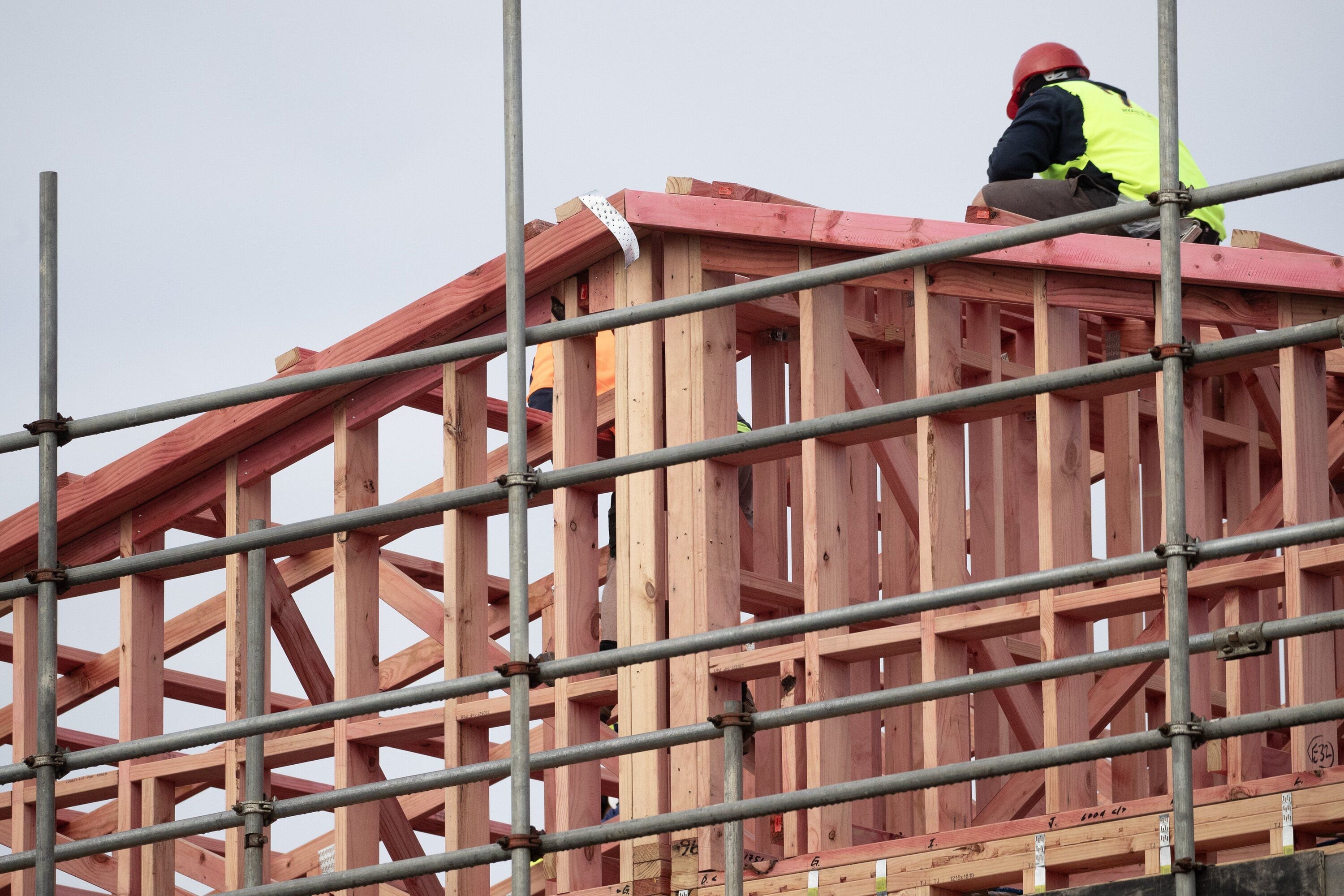Changes to the building consent process are being welcomed by the director one of New Zealand’s largest home builders who says the current system is “arduous” and “overkill”.
Building and Construction Minister Chris Penk announced the government was investigating options to reform the building consent system to establish a more “consistent and streamlined model”.
Classic Group director Peter Cooney said the consenting process was arduous and probably an overkill from leaky building syndrome.
“Councils have had to pay a lot of money over the years and obviously taken a much more proactive role in issuing consents, but it’s got to the stage where it’s really cumbersome.”
Thousands of homes built between 1992 and 2008 had leaky issues, costing billions to rectify.
Building and Construction Minister Chris Penk said the consenting system sapped productivity. Photo / Alex Burton
Penk said: “New Zealand has some of the least affordable housing in the world, which has dire social and economic implications.
“At the heart of the issue is unreasonably high building costs and a cumbersome consenting system which saps productivity and disincentivises growth and development.”
Building consents can take up to 20 days to process once lodged with the local council.
Cooney said for subdivisions with house and land packages that Classic Group builds they use about 20 – 30 different house plans.
Once these have been approved by the council other homes with the same plans shouldn’t need 20 days to be approved, he said.
Another issue was the number of inspections required and the time they took to complete.
He suggested having a certified builder do some of the inspections digitally by submitting photos to the consenting authority.
“It’s gone from the cowboy days to something that’s just so stringent and over the top that it’s causing all sorts of issues in the building industry.
“The process needs a good shake up.”
An average house build used to take 12 weeks to be completed but this was now 16 to 18 weeks, which was a long time for interest to accrue on the debt used to finance developments, he said.

Classic Group director Peter Cooney said the consenting process was arduous. Photo / Supplied
“Time is really critical in the construction industry. Time kills most projects because everyone’s financing, everyone’s borrowing money.
“To lose time has a major effect on your cash flow.”
There was also inconsistency between different councils for consenting requirements, said Cooney.
Penk said the 67 building consent authorities had different practices and approaches.
The building code was supposed to apply consistently to all building work nationally, he said.
“However, there are many instances of builders submitting the exact same plans to different building consent authorities and finding considerable additional costs and delays result from “differing interpretations of the building code”.
Options Penk announced for reform included:
The government would also look at the liability settings of the building system as well, said Penk.
“Under the current settings, councils and their ratepayers are liable for defective work... councils can be ‘the last person standing’ available to foot the bill when things go wrong.
“This creates a highly conservative and risk averse approach, which contributes cost and draws out deadlines.”
Tauranga mayor Mahé Drysdale said councils have been asking for the liability settings to be reviewed for some time. Photo / Alex Cairns
Tauranga mayor Mahé Drysdale said confirmation that liability was being reviewed was the most important thing.
“Joint and several liability means we end up paying for other people’s mistakes which not only incentivises a risk averse approach but it’s not fair on the ratepayer.
“Councils have been asking for change on this for some time.”
Reform was also an opportunity to improve consistency and efficiency in the system, he said.
“Any changes to the regulations to allow collaboration across building consent authorities would be welcomed.”
Alison Curtis, Western Bay of Plenty District Council general manager regulatory services, agreed councils were the last man standing with the current liability settings.
The liability, ensuring staff competency and the accreditation regime meant there was a lot of pressure on councils to ensure there was a high degree of rigour in the system, she said.
The council had always been advocates from working more effectively regionally and look at cost and staff efficiencies, Curtis said.
“Opportunities and perhaps some resetting in terms of legislation that makes it easier to do that would be a positive.”
There have been various amendments to the Building Act, but the government was courageous to be looking at reform rather than tweaks, she said.
LDR is local body journalism co-funded by RNZ and NZ On Air.




1 comment
This is….
Posted on 11-10-2024 11:47 | By Shadow1
…well overdue. Tauranga ratepayers have been paying for the work of dodgy developers and builders for far too long.
I would like to see TCC reduce their involvement in large building/subdivional projects to collecting progress reports only. The developer, builder, architect, supplier should guarantee the work via long term insurance or bonds. They hide behind the voluntary liquidation of their businesses, leaving the client, council or central government to pick up the tab for their shoddy and illegal work.
Council (read ratepayers) have forked out many millions of dollars to fix these problems and it has to stop.
Shadow1
Leave a Comment
You must be logged in to make a comment.